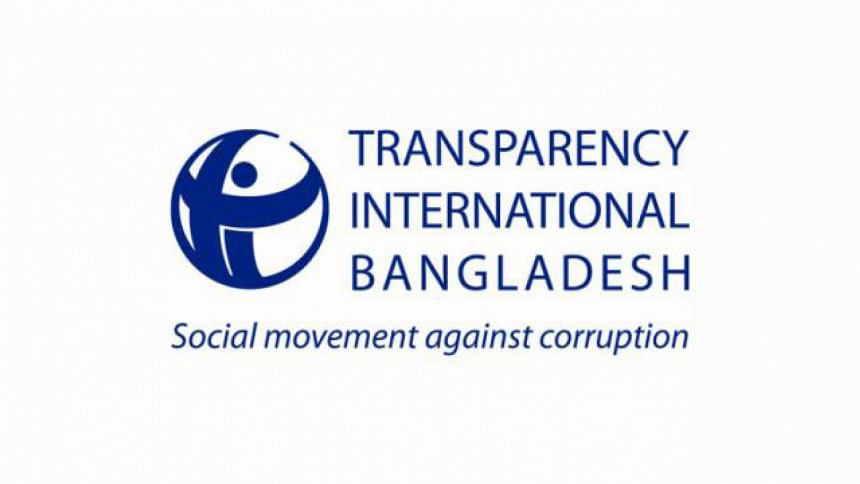$2b laundered for buying work visas

More than two billion dollars was laundered out of Bangladesh to six major labour-recruiting countries to illegally purchase work visas in 2016, said Transparency International Bangladesh Executive Director Dr Iftekharuzzaman.
“In 90 percent of the cases, visas are purchased illegally, whereas visas actually have no cost. An estimated 2.1 billion dollars were laundered in 2016 out of Bangladesh for illegal transactions to purchase work visas, which are officially supposed to be free of cost, in Saudi Arabia, Qatar, UAE, Oman, Singapore and Malaysia.
Powerful syndicates in destination countries are involved in this illegal trade taking advantage of high demand in Bangladesh for such permits and lack of effective negotiations to ensure compliance,” he said yesterday.
Asked if such an amount of money still continued to be laundered, the anti-corruption campaigner told The Daily Star that it was still the same as there had been no changes to the malpractice of purchasing visa from foreign employers and then selling those to the workers.
“The transaction is done via hundi [informal money transfer],” he said.
The observations came at a panel discussion at the Obhibashon o Shonar Manush Shommillon 2019 organised by the Refugee and Migratory Movements Research Unit (RMMRU) at the Bangabandhu International Conference Centre in the city.
Migrants, their family members and government officials were recognised for their successes and good services to the sector during the event.
Iftekharuzzaman said almost all the overseas jobseekers had to depend on manpower brokers who operated informally both at home and abroad.
A section of government officials are also involved in the informal syndicate, he added.
“We won’t get the benefit of migration if we can’t break the syndicate,” Iftekharuzzaman said, adding: “Unfortunately, we talk of the remittance we get but not the money being laundered out of the country.”
According to the Bureau of Manpower Employment and Training (BMET), around one crore Bangladeshis work abroad, mostly in the Middle East and Southeast Asian countries and send home around 15 billion dollars annually.
The yearly average labour migration from Bangladesh is seven lakh.
High cost of migration, however, has been a major concern for long but authorities are unable to control it. As per the G-to-G Plus deal with Malaysia in early 2016, migration cost was fixed at Tk 40,000, but later it rose to Tk 4 lakh in the informal, illegal channels.
According to insiders in the recruitment industries, a good portion of the money laundered is used to buy visas, and several layers of informal brokers are involved in the process.
“The situation will not improve if we cannot bring the informal brokers under a legal framework,” Iftekharuzzaman said.
This malpractice, which partly accounts for many times higher cost for Bangladeshi migrant workers compared to most other sending countries, will continue unless the government undertakes effective negotiations on equal footing with the relevant countries, he added.
Iftekharuzzaman said migration was a two-way street, which meant that it was not only Bangladesh that could benefit from migration, but also the countries that recruited Bangladeshi workers.
“Therefore, there is no reason for us to be subservient to the destination countries while we negotiate.”
RMMRU Chair Prof Tasneem Siddiqui said overseas labour recruitment was almost impossible without brokers. Therefore, informal brokers should be brought under a legal framework so that they can be held accountable.
Centre for Policy Dialogue Distinguished Fellow Dr Mustafizur Rahman said many of the migrants had to take loans at high interest rates -- as high as 120 percent. “In such cases, migration cannot be beneficial.”
He said 11 of the 17 goals set in the UN’s Sustainable Development Goals (SDGs) could be achieved if migrants were protected.
“We need to reduce migration cost, as well as the cost of remittance transfer. The SDG goal is to reduce remittance transfer cost to 3 percent. In Bangladesh it is below 5 percent,” Mustafizur Rahman said.
Economist Dr Hossain Zillur Rahman, adviser to a former caretaker government, said it was regretful that there was more interest in the remittance generated than the humane aspects of the migrants who toil abroad far from their families.
“Why can’t we give a better treatment to the migrants at the airport?” he said, adding that some migrants return home come with certain skills and authorities should think how those can be better utilised.
At a separate session, Manusher Jonno Foundation Executive Director Shaheen Anam said migration was a win-win situation when migrants are safe and get fair pay. The government, NGOs and recruiting agencies all need to work in unison for migrants’ protection.
At the earlier panel discussion, Shirin Lira, gender and social inclusion adviser of PROKAS, an NGO, said there were many cases of women migrants who are allegedly exploited abroad, but there remained a serious lack of justice.
“They neither get justice abroad nor after returning home,” she said.
Parliamentary Caucus on Migration Chair Israfil Alam, MP, BMET Director General Salim Reza, International Centre for Climate Change and Development Director Dr Saleemul Huq, WARBE Development Foundation Chairman Syed Saiful Haque also spoke on the occasion.

 For all latest news, follow The Daily Star's Google News channel.
For all latest news, follow The Daily Star's Google News channel. 








Comments